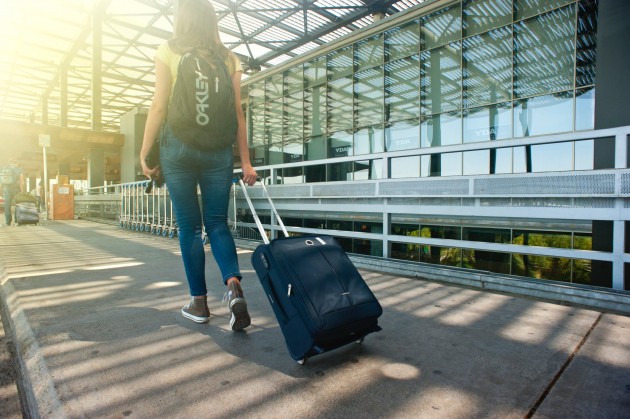With spring break right around the corner, and many people looking to finalize their travel plans, Quest Diagnostics, the world’s leading provider of diagnostic information services, is offering travel tips to help you have a safer spring break during the COVID-19 pandemic, according to a recent press release.
Evaluate Travel Risk
There are multiple factors to consider when evaluating where to travel for spring break. The Centers for Disease Control and Prevention provides an exhaustive list of travel destinations around the world and ranks them from Level 1 (Low Risk) to Level 4 (Very High Risk). The CDC recommends avoiding non-essential travel to popular spring break destinations such as Mexico, Jamaica and the Bahamas, which are currently at Level 4. Pick a destination with low COVID-19 positivity and transmission rates when possible.
Choose Your Travel Companions Wisely
If you plan to travel to visit friends or family members, you may be tempted to hold a big gathering. However, when planning a party or other event, keep in mind that when large numbers of people get together, especially indoors or without the use of masks and social distancing, risk increases. Vaccination can significantly, but doesn’t completely, reduce this risk. Socializing with the same people during your trip to avoid mixing with others who may have an unknown COVID-19 status is another important safety measure.
You may also want to talk with your travel companions to ensure you share similar attitudes about safety measures, like vaccination and masking.
“It can be awkward, but don’t be afraid to ask, ‘what are your thoughts about how to be safe amid COVID-19 during our trip?’” said Jeffrey Dlott, MD, Medical Director, QuestDirect. “Otherwise, you may end up traveling with someone whose ideas and behaviors conflict with yours, causing undue tension and stress when both of you just want to relax and have fun.”
Test Before You Leave
Testing is a good way to understand your COVID-19 status before traveling to a destination and potentially getting sick or spreading the virus to others. Self-directed testing through services such as QuestDirect, from Quest Diagnostics, provides options for molecular (PCR/NAAT) and rapid antigen testing. It is important to check the requirements for your destination as some may require a specific type of test.
Understand Your Testing Requirements to Return Home
Proctored COVID-19 is required for some travel, including international travelers coming to the U.S., according to CDC guidelines. Unlike most at-home COVID-19 tests, proctored testing involves a telehealth visit in which a healthcare professional guides you in collecting a specimen and reads the results virtually, which enables you to receive a certified report. Quest offers a proctored at-home COVID-19 rapid antigen test with proctored observation from anywhere in the world. This is available for purchase on QuestDirect™, the company’s self-directed testing platform. Individuals will receive a lab report that may be used for international travel and for return to work or school programs.
Don’t forget the basics
While it can be easy to brush off safety measures on any vacation, masking (preferably with an N95 or KN95 mask), frequent hand washing, and social distancing, especially when indoors, continue to be important tools for reducing risk to yourself and others. Most of all, if you haven’t been vaccinated, doing so well before your trip is the best way to protect yourself and others.
Whether you long to see loved ones or dip your toes in the ocean, using your best judgment and taking basic precautions will help you stay safe – and have a good time.










